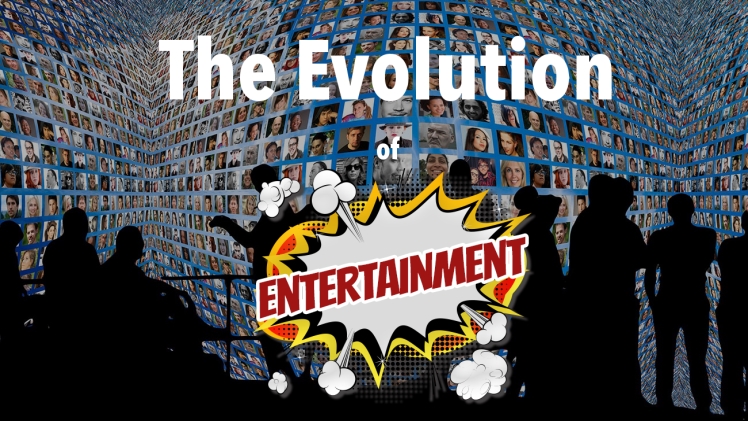Introduction
Entertainment is an integral part of human culture and has evolved significantly throughout history. From ancient spectacles to modern marvels, the world of entertainment has constantly adapted to reflect societal changes and technological advancements. This article explores the fascinating journey of entertainment, tracing its roots back to ancient civilizations and examining its transformation into the diverse and immersive experiences we enjoy today. By delving into the history, impact, and future of entertainment, we can gain a deeper understanding of how it has shaped our lives and continues to captivate and inspire us.
- Ancient Spectacles and Performances: The origins of entertainment can be traced back to ancient civilizations, where spectacles and performances played a vital role in society. From Greek tragedies performed in grand amphitheaters to gladiatorial combat in the Roman Colosseum, these spectacles provided both amusement and a reflection of societal values. Theaters and arenas served as platforms for storytelling, showcasing tales of heroism, tragedy, and comedy. These performances brought communities together and provided an escape from everyday life.
- Renaissance and the Birth of Modern Theater: The Renaissance period witnessed a resurgence of interest in arts and culture, leading to the birth of modern theater. Playwrights like William Shakespeare produced timeless works that continue to be performed today. The advent of movable type printing during this time also allowed for the dissemination of written plays, expanding access to entertainment beyond the reach of the elite. The theater became a popular form of entertainment, attracting audiences from all walks of life and contributing to the growth of the performing arts.
- The Rise of Cinema and Television: The 20th century saw the rise of two major mediums that revolutionized entertainment: cinema and television. With the invention of motion picture technology, the world experienced a new form of storytelling. Films provided an immersive visual and auditory experience, captivating audiences worldwide. From silent movies to the advent of sound and color, the evolution of cinema mirrored technological advancements and societal changes.
Television brought entertainment directly into people’s homes, offering a diverse range of programming. From news broadcasts to sitcoms and dramas, television became a central part of daily life. It not only entertained but also served as a medium for information dissemination and cultural exchange. The introduction of cable and satellite television further expanded options for viewers, catering to specific interests and preferences.
- The Digital Revolution: Gaming and Online Entertainment: The digital revolution of the late 20th century and early 21st century transformed the entertainment landscape. The emergence of video games revolutionized interactive entertainment, allowing individuals to become active participants in virtual worlds. From simple arcade games to complex and immersive experiences, gaming evolved into a multi-billion-dollar industry that rivals traditional forms of entertainment.
The internet brought about a new era of online entertainment. Streaming services like Netflix and Amazon Prime Video revolutionized the way we consume movies and TV shows, offering on-demand access to a vast library of content. Social media platforms like YouTube and TikTok provided a space for user-generated content, allowing individuals to showcase their talents and creativity to a global audience. The proliferation of smartphones and mobile devices further contributed to the accessibility and portability of entertainment, ensuring that it is never more than a few taps away.
- The Future of Entertainment: As technology continues to advance, the future of entertainment holds exciting possibilities. Virtual reality (VR) and augmented reality (AR) are poised to transform how we experience entertainment, blurring the lines between the real and virtual worlds. The integration of AI and machine learning into entertainment promises personalized and immersive experiences tailored to individual preferences.
Conclusion
Entertainment has come a long way since ancient spectacles and performances.

